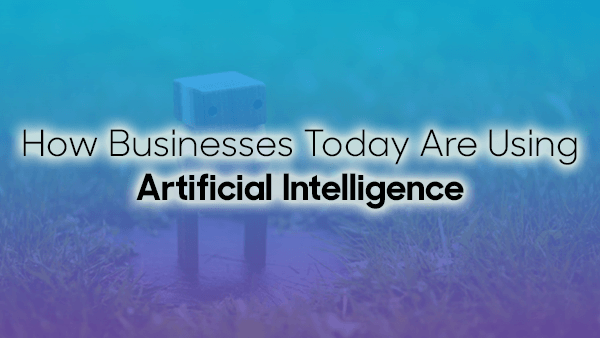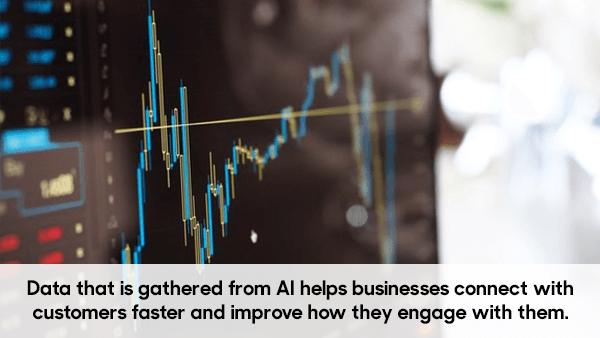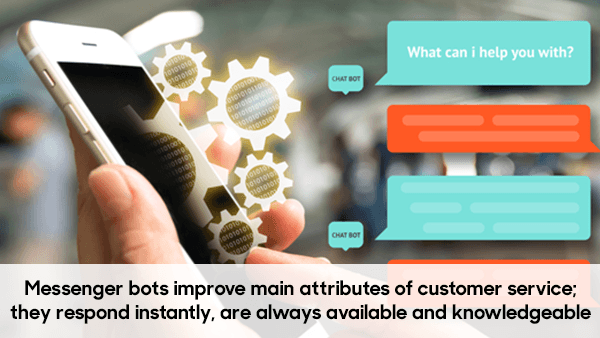
How Technology is Transforming Modern Business
April 20, 2017
This Week in Getting Hacked: Billionaire Superyacht Owners Edition (Where Will It End!?)
May 8, 2017We are not about to be taken over by machines, at least not yet. But considering how they have creeped into everything from how we communicate, live, work, and play, it won’t be long before machines become a large part of everyday existence.

In part, we have businesses who adopted artificially intelligent systems to thank for this. Statistics show us that:
- 40 percent of mobile interactions are expected to proactively ask for support from smart agents by 2020 (Gartner)
- 80 percent of businesses believe that artificial intelligence improves work performance (Narrative Science)
- 75 percent of development teams will incorporate AI functionality in applications or services (IDC FutureScapes 2017)
These stats are based facts. Analysis of how businesses, that are currently using artificial intelligence, can give us a better idea of its implications. Let’s look at them in detail.
Using Data to Generate Valuable Consumer Insights
Data has always been a valuable commodity for businesses. For enterprises, this data can be information on employees. For consumer services, this can be information about customers.

However, until AI and machine learning came to be, this data was largely unstructured which basically made it impossible to gain any value from it. Sure, a business might know what items are being sold faster than others, but the “why” remained a mystery.
Long story short, a lot of marketing potential usually went down the drain.
Today, artificially intelligent systems are not only helping consumer based businesses structure data better, but they are also making sense of it. The data that is gathered is helping them connect with customers faster and improve how they engage with them. For example, some businesses today are using AI to:
● Personalize shopping experiences
Using AI to gain customer preferences online is helping brands convert more visitors into buyers. The North Face, a retail brand, is a good example of this. It uses an AI tool in its website that asked shoppers a series of questions like where and why they would like to use the coats they are looking to purchase (e.g Commuting in Boston, Yosemite in spring).
● Gain Consumer Trust
Some retailers often use fake product reviews to win customers. It works for a while, but when products turn up being everything that these reviews are not, it hurts the image of online stores that stock these items.
To combat this practice, ecommerce brand Amazon used artificial intelligence to preserve its image. It uses a machine learning system, created in-house, to push verified customer purchase recommendations and reviews that have been marked as useful to the top.
Making Services more Accessible
How many times have you tried to call customer service for queries only to be put on hold or redirected? How long does it take you to place your order when there is a long line at the counter? Speeding up the purchase process is a start, but customers often have multiple orders or queries at a time which can delay the whole process.

Factors like long waiting times have always been a problem for businesses and the people they serve. To make services more accessible, some businesses have started investing in AI tools that bridge this gap.
Chatbots, digital personal assistants which combine AI capabilities like machine learning and NLP (Natural Language Processing), are an example of these tools. Here are a few ways chatbots are allowing businesses to make services more accessible:
● Instant customer service with virtual assistants
Messenger bots improve main attributes of customer service; they respond instantly, are always available and knowledgeable. The last is thanks to machine learning capabilities that allow them to learn from interactions and retain this knowledge.
● Instant services in Line
Most people would rather skip the line and order ahead. And some businesses in the food industry are using chatbots to provide them this benefit.
“My Starbucks Barista,” a new feature yet to be launched from Starbucks, will allow customers to speak to a virtual AI assistant via voice command to order drinks as they wait in line.
A Messenger chatbot from 1-800flowers.com for example, allows users to order items when to wherever they want all without talking to an actual customer representative.
Improving Business Processes
Enterprises strive to be more competitive and anything that can provide them insights needed to do this is worth its weight in gold. Data is an example, but traditional computations were largely ineffective in detecting useful patterns that might help in improving business processes. That is, until AI came into the picture.

Artificial intelligence now gives businesses the opportunity to expand analytical capacities to gain meaningful insights from vast amounts of data in computer databases and the web. Here are a few examples that show how:
● Monitoring productivity
It’s incredibly hard for employers to track how productive employees are during any given time. Lately, some businesses are using AI powered digital assistants to do this for them. Consider the “Howdy” feature in Slack that automatically sends questions like these (e.g related to progress in projects) to your workforce and collects their answers on your behalf in the form of a report.
● Streamlining business tasks
AI can help reduce labor intensive processes and factors like human error that can cause inefficiencies in work processes. To illustrate, consider how a Japanese insurance firm replaced 34 of its employees with artificially intelligent systems earlier this year. These systems, based on IBM’s Watson Explorer, can analyse customer data (like medical histories, images and video files) to calculate payouts to policyholders.
To recap:
● Consumer based businesses are turning to AI tools to gain insights in consumer behavior, use it to connect with them and provide them personalized shopping experiences.
● Some businesses are using AI powered digital assistants to improve in-store experiences.
● AI provides businesses the chance to identify patterns from mountains of data and gain meaningful insights to improve business processes.
Considering how businesses are currently using AI, it holds a lot of potential in improving customer and corporate relationships.